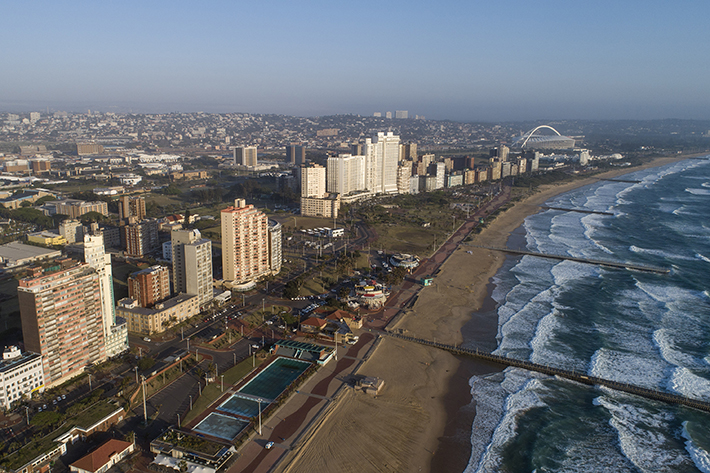|
||||||||||
| Home Nation World Business Opinion Lifestyle ChinAfrica Multimedia Columnists Documents Special Reports |
|
||||||||||
| Home Nation World Business Opinion Lifestyle ChinAfrica Multimedia Columnists Documents Special Reports |
| ChinAfrica |
| Blue Economy a New Growth Point |
| Cooperation can help countries enhance the development of the ocean economy |
| By Mmemme Esther Mogotsi Web Exclusive ·2022-11-22 |
The Xiamen-Nice-Durban Dialogue was held by China International Communications Group and Xiamen Municipal People’s Government online and offline in Beijing and Xiamen on 22 November. Themed Mutual Learning Among Maritime Civilisations for a Shared Future, the forum focused on how the three coastal cities could further cooperate on marine protection and sustainable development. Officials and scholars from China, France and South Africa discussed approaches to forging open, inclusive and mutually beneficial “blue partnerships” and promoting the building of a community for a shared future in marine protection and development.
Mmemme Esther Mogotsi, vice director of the Government Communication and Information System, South Africa, talked about the experience and potential of marine development in South Africa at the forum. Below are edited excerpts of her remarks.

Mmemme Esther Mogotsi, vice director of the Government Communication and Information System, South Africa
This Xiamen-Nice-Durban Dialogue is necessary especially at a time when blue economy is fast becoming an area of huge interest for policymakers across the world. As countries with long coastlines, South Africa, China and France should join hands to promote the development of marine economy and protect marine ecology for sustainable development.
South Africa is located on the southernmost tip of the African continent with a coastline stretching more than 3,000 km from the desert border with Namibia on the Atlantic coast southwards and then to the border of subtropical Mozambique on the Indian Ocean to the north. In this context, South Africa has unique advantages in developing its ocean economy, and South African government has been tapping economic benefits from the ocean around it. We have prioritised the acceleration of interventions in the ocean sector in an effort to drive transformation and unlock the potential of the South African ocean economy.
Ocean economy plan
The South African government has big plans for the ocean economy under the Operation Phakisa. Through this priority programme, we aim to grow the ocean economy’s contribution to the country’s GDP to 129 billion-177 billion South African rands ($7.45 billion-10.42 billion) by 2033. This is some 250-300 percent of its present value and is expected to provide up to 1 million new jobs.
The Operation Phakisa has set priorities in four aspects of maritime transportation and manufacturing, offshore oil and gas development, aquaculture and marine preservation and management.
Maritime transportation is an important part of South Africa’s ocean economy. South Africa is home to world-class infrastructure, including eight major ports. They include one of the world’s biggest coal terminals, the Southern Hemisphere’s deepest and biggest natural harbour, and two of the world’s top container ports.
The country has ports capable of handling Very Large Crude Carriers, and the world’s biggest Cape Class and Ultra Large Container Ships.
Presently, South Africa has 127 vessel berths, together handling 160 million tonnes of throughput per year. Forty-two berths are break-bulk, 30 are dry bulk, 18 are for containers and 16 for liquid bulk.
The port system has around 6,000 hectares of landside area and over 30 km of quay wall. This will be expanded to 9,000 hectares and 80 km during the present 30-year planning period.
As well as serving South Africa itself, the ports are a gateway to the African region. Neighbouring landlocked countries can be reached through extensive rail and highway networks.
In light of the importance of the maritime sector to our wellbeing and indeed that of the continent, South Africa has implemented the National Transport Master Plan 2050. This plan is aligned to the African Integrated Maritime Strategy 2050, which is an African-driven, all-inclusive, long-term vision to address Africa’s multifaceted maritime challenges and opportunities.
The African Integrated Maritime Strategy 2050 is a game changer and South Africa is part of a process where all African nations are working to ensure better information sharing, communication, collaboration, cooperation, and capacity-building for the ocean sector.
The ocean economy is the lifeblood of our continent because over 80 percent of international goods are transported in vessels and over 90 percent of Africa’s imports and exports are conducted by sea. With that, about 4,000 ships transit around South Africa each month and over the past four decades, the volume of global seaborne trade has more than quadrupled.

A view of Durban, South Africa
Future prospects
However, South Africa also faces challenges in its development of the ocean economy and ecological protection, and we need international cooperation to gain further impetus for future development. The future prosperity wealth lies in harnessing the potential of our ocean economy.
This Xiamen-Nice-Durban Dialogue mechanism is a valuable attempt in this regard. We hope to promote exchanges and cooperation of South African coastal cities with those in China and France so as to realise marine protection and sustainable development.
In this respect, I would like to make suggestions in three aspects:
First, promote innovation in ocean economy development. Based on this platform, our three countries can launch policy coordination, talent training and project cooperation in this area so as to share cutting-edge technologies. Projects such as deep-sea exploration and protection, ocean carbon neutrality, satellite ocean observation and big data application, coastal area protection and planning, and marine resource utilisation and protection can be conducted on this platform.
Second, strengthen cooperation among institutions of higher learnings. South Africa, China and France have a large number of colleges and universities specialising in oceanography. Through cooperation among these universities, we can foster versatile talents with international vision, cutting-edge knowledge, and capacity for conducting cross-cultural exchanges. Education cooperation should cover both undergraduate and postgraduate levels.
Third, promoting cooperation in maritime transportation, maritime tourism, marine resource protection, marine product processing and cold-chain transportation. Efforts should be made to strengthen cooperation in new technologies such as offshore wind power generation, seabed oil exploration, marine bio-pharmacy and marine information industry.
This Xiamen-Nice-Durban Dialogue marks the beginning of a new stage in blue economy cooperation among our three countries. In the future, cooperation in this area will become a new growth point.
| About Us | Contact Us | Advertise with Us | Subscribe |
| Copyright Beijing Review All rights reserved 京ICP备08005356号-5 京公网安备110102005860号 |